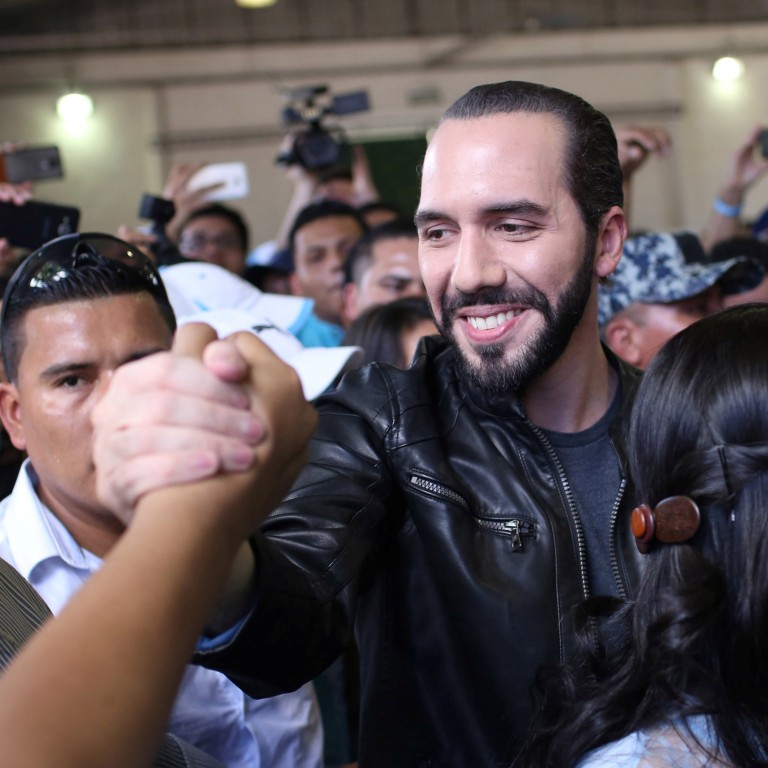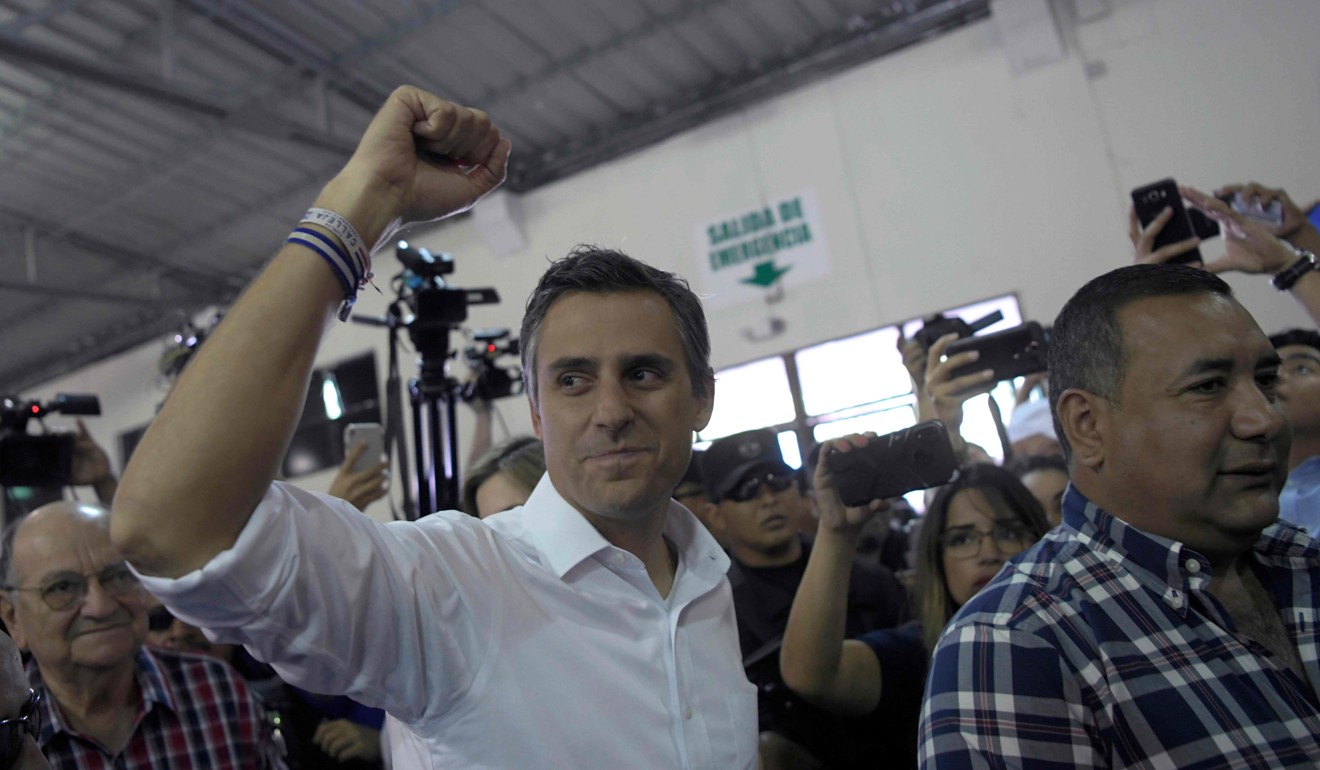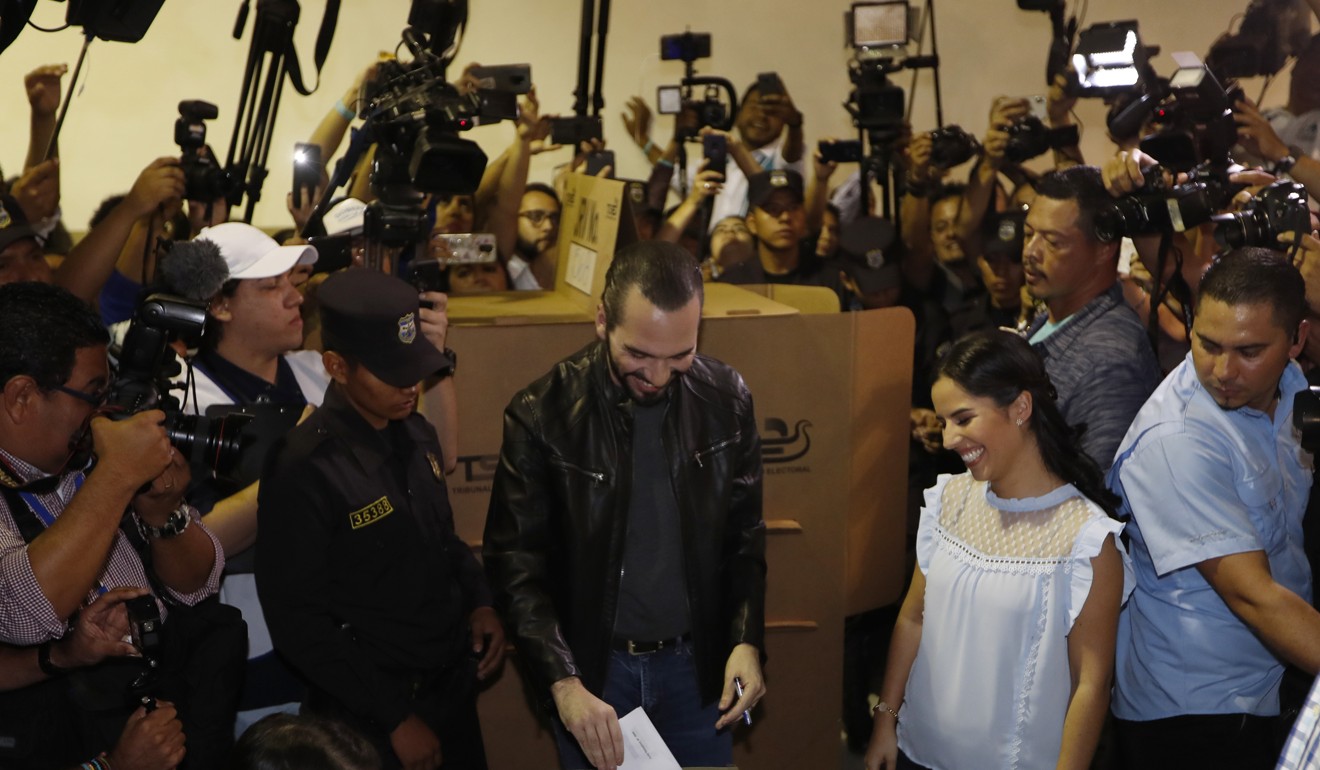
El Salvador votes for new president, anti-corruption outsider favoured
- Nayib Bukele appears to be front-runner as voters seek an alternative to traditional parties
Polling places in El Salvador began to close on Sunday in the first round of a presidential election that is expected to be won by an energetic former mayor campaigning as an anti-corruption outsider, ending decades of a two-party system.
Nayib Bukele, 37, has capitalised on the anti-establishment feeling sweeping elections across the region and further afield, as voters seek an alternative to traditional parties.
Since the end of its bloody civil war in 1992, El Salvador has been governed by just two parties: the ruling leftist Farabundo Marti National Liberation Front (FMLN) and its rival, conservative Nationalist Republican Alliance (ARENA).
Though he describes himself as from the left and was expelled from the FMLN, Bukele has formed a coalition with parties including a right-wing one which together have just 11 seats in the legislature.

“The two groups that created the war still want to keep governing, and what’s more, they’re corrupt,” Bukele told reporters after voting in the capital. Supporters in bright blue T-shirts surrounded him, chanting, “Yes we can”.
Polls began shutting down at 5pm CST, and El Salvador’s electoral tribunal is expected to announce the initial results at 8pm CST.
Pollster Mitofsky found in a January poll that Bukele had 57 per cent of voter support, while a poll by Gallup showed him with 42 per cent. Both polls show ARENA’s Carlos Calleja in second place.
If no candidate wins more than 50 per cent of Sunday’s vote, two candidates will move into a run-off to be held in March.
’SOMETHING DIFFERENT’
El Salvador’s next president will face President Donald Trump’s criticism of Central American governments for not doing enough to prevent migration to the United States. He will also have to manage the American backlash against the country’s recently established diplomatic relations with China.
At home, the new government will have to try to kick-start a sluggish economy, combat corruption and tackle one of the highest homicide rates in the world.
Some voters told Reuters they were sceptical that Bukele has the experience to govern. Others said a third-party candidate is the only option for dramatic change.
“We had 20 years eating trash with ARENA, and 10 years with the Front. We have to vote for something different, and something different is this kid Nayib,” said driver Oscar Rosales, 46, a former FMLN supporter who voted at a school in the city of Santa Tecla, outside the capital.
Entire families turned up at polling stations to vote, from parents with their children to older people in wheelchairs, in a calm atmosphere presided over by police.
At San Salvador’s main polling place, a large convention centre, each party loudly blasted its own music from stalls set up with colourful banners, while campaign workers danced and handed out pens and stickers.
’CORRUPT CAN’T HIDE’
Bukele, who was San Salvador mayor between 2015 to 2018, wants to create an international anti-corruption commission with the support of the United Nations, following similar committees in Guatemala and Honduras.
“We’ll create a (commission) … so that the corrupt cannot hide where they always hide, instead they’ll have to give back what they stole,” Bukele said in January.

Growing up, Bukele’s relatively wealthy family was sympathetic to the FMLN, the former leftist guerilla army that became a political party at the end of the civil war.
But Bukele has turned away from Latin America’s traditional left, branding Venezuelan leader Nicolas Maduro and Nicaragua’s Daniel Ortega as well as conservative Honduran Juan Orlando Hernandez as dictators.
“A dictator is a dictator, on the ‘right’ or the ‘left,’” Bukele, who has a large social media following, wrote last week on Twitter.

